The Circular by the Sydney Review of Books
Jane McCredie, CEO
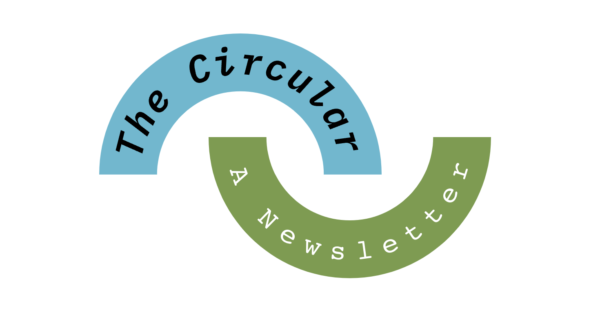
I’ve been really enjoying reading the Circular, the new project from the Sydney Review of Books. Edited by Tiffany Tsao, the newsletter each week presents a carefully curated selection of non-fiction articles from various other publications. I’ve discovered some powerful new writing through it, and I was delighted when an essay written for Writing NSW by Eileen Chong was featured a while back. The recent issue on “the circular of life” was particularly thought-provoking and moving, with pieces by Anne Roscoe, Angelina Hurley, Sar Fegan, Elfie Shiosaki, WJP Newnham and Vivian Blaxell. If you’re not already a subscriber, you can join the list here.
Echolalia by Briohny Doyle
Amy Lovat, Program Officer
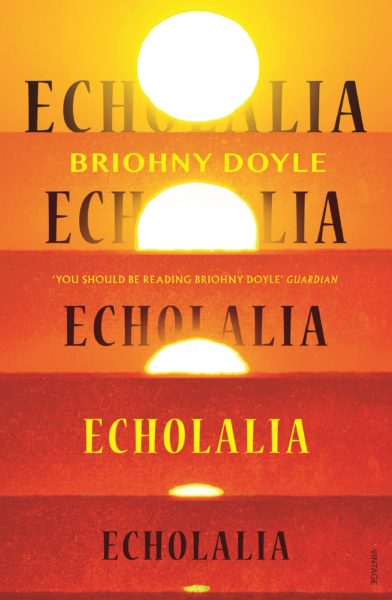
I usually read pretty fast — finishing books in one sitting, if I’m totally absorbed. But reading Echolalia by Briohny Doyle has been a different story. I’m totally absorbed, yes, but I’m also savouring it. Each page, each chapter. This is a slightly noir novel that asks: what would drive a mother to do the unthinkable? Set in the not too distant future where climate change has wreaked havoc on the country — a lake vista at the gleaming windows of the protagonists’ mansion is dried up, birds disappeared, pools are emptied and water restrictions are at the highest ever during harsh summers. It’s a gripping read about womanhood, motherhood, mania and mental health, set in a small town with a huge class divide, straddling the ‘before’ and ‘after’ of a tragedy that tore a family apart. Five stars.
Diverse Publishing Isn’t just About Writers by Bridget Caldwell-Bright for Kill Your Darlings
Martyn Reyes, Project and Communications Officer
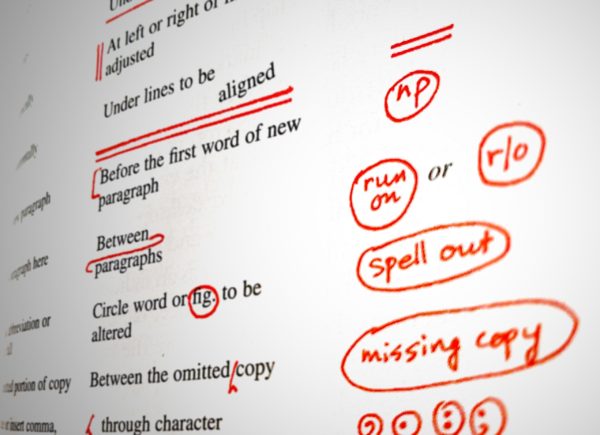
Diverse Publishing Isn’t Just About Writers is a generous essay by Jingili and Mudburra editor, Bridget Caldwell-Bright for Kill Your Darlings. The essay ultimately serves as a critique of ‘diversity’ within the publishing industry, and looks into the problem areas within the ‘literary eco-system’. Caldwell-Bright points out that while First Nations people and people of colour have increasingly been published over the years, the industry’s attempt at equity means close to nothing if this isn’t also reflected among editors, publishers, sensitivity readers, etc.: ‘Although it may be beneficial for diverse books to exist, it is necessary to critically analyse the way they are published also.’ Caldwell-Bright provides a variety of solutions and suggests ways forward. Publishers should pair Indigenous editors with Indigenous writers, develop clear implementation strategies that promote individual accountability, collect and measure data in relation to diversity within workplaces and equip the new generation of diverse industry professionals with the skills, experience and networks to succeed.
The Sentence by Louise Erdrich
Julia Tsalis, Program Director
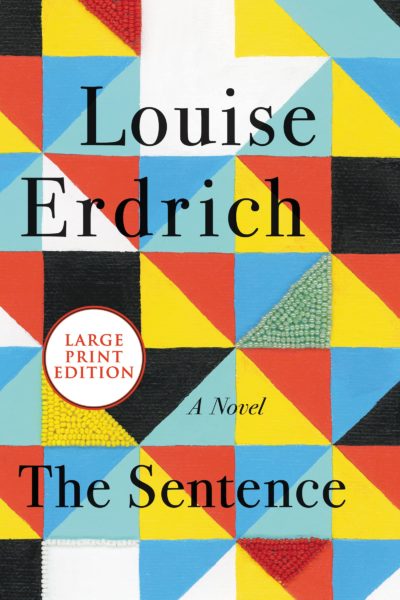
Louise Erdrich’s most recent novel, The Sentence, is a book of many things: a ghost story, an ode to books and the power of reading, a contemporary telling of these disorienting times, and a consideration of identity and racism.
The book begins as Tookie, an Ojibwe woman, considers the word ‘sentence’ as a grammatical structure, the foundation of many great works, and as a period of incarceration, as she herself is in prison for a crime that is comical in its madness but undeniably horrifying.
In prison books save Tookie’s life and after an early release she gets a job in a bookstore in Minneapolis (very like Birchbark Books which is owned by Louise Erdrich). Tookie’s life after prison is rich with love and friendship, but equally complicated and filled with regret. Then, “In November 2019, death took one of my most annoying customers. But she did not disappear.” This annoying customer is Flora, a white woman who was “a stalker — of all things Indigenous.” Flora haunts the bookstore and will not leave Tookie alone. As Tookie is dealing with this the pandemic hits and, in Minneapolis, George Floyd is murdered by police.
Louise Erdrich captures the complex effects of these challenging times, when so much is destabilised, that being haunted by a ghost seems no more unreal than this global pandemic. In her ever-brilliant way Erdrich has created a world of complex characters reckoning with the present, the past and the future, sometimes all at the same time.
Culture in the Making (a walk and talk) by Luke Patterson for the Sydney Review of Books
Isaac Wilcox, Administration and Digital Services Officer
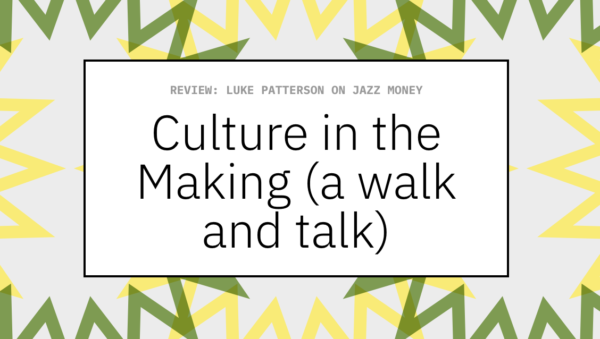
I’ve just read a fantastic piece of writing by Luke Patterson. Luke is a Gamilaroi poet folklorist and musician living on Gadigal lands.
In his essay he discusses his meeting and conversations with Jazz Money about Jazz’s new book “How to make a basket” among other things.
It discusses the nature of language, their relation to Country, the interconnectedness of these two things. The page layout is a conversation itself – in voice, tone and image. I see the irony of a review of what is, really, a review, but it was more than that. It spoke to me of places I know and my relationship to those places. As an immigrant I think often about place and the people, the distance between myself and It. All I can say about the writing by Luke Patterson is all I can say about anything that resonates, I was so moved. You can read Luke’s essay here.
*
More from Writing NSW
Check out our full range of in-person writing courses in Sydney, our online writing courses and our feedback programs to see how we can help you on your writing journey. Find out about our grants and prizes, as well as writing groups across NSW, and sign up to our weekly newsletter for writing events, opportunities and giveaways.
